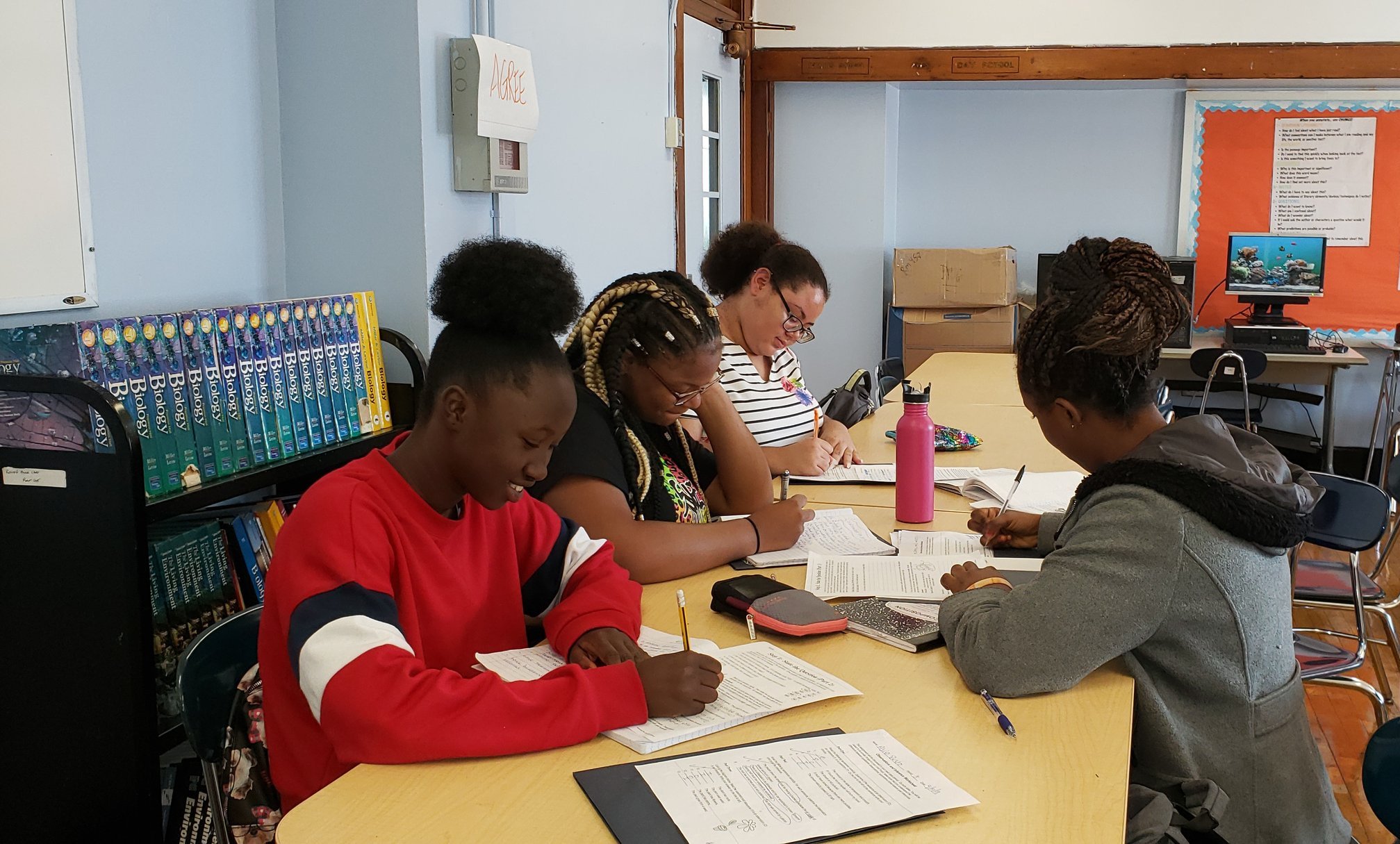For more than 25 years, Consortium schools have been preparing students for success in college, careers, and citizenship.
Student achievement and post-high school outcomes for our students have regularly surpassed those for similar students in New York State despite Consortium schools serving a disproportionate number of higher needs students.
What graduates and parents say about our impact
“My college friends can’t seem to really recall anything they learned in high school. They would memorize things for the exam, but I wanted to understand. And I think it was just kind of the way that we were taught in high school. When you’re taught that your opinion and your perspective matter, and it should be presented to other people and it should be applauded, that’s a different mentality that you’re going into college with.” ― Ramgelly, Graduate, The Laboratory School of Finance and Technology
“Learning is much bigger than memorizing answers or facts. Learning is about taking in those facts, thinking about them and applying critical thinking, then putting out your own ideas. Going to a Consortium school encourages that.” – Ben, Graduate of East Side Community High School
“My kids are gaining invaluable critical thinking and presentation skills. My son, now in college, often shares how the foundation he built at his Consortium school gave him the confidence and skills to excel in areas where many of his peers seem to struggle.” - Valentina Powers, Consortium Parent
What external researchers say about our impact
“The authentic learning and assessment practices of Consortium schools contribute to enhanced academic progress for students: …Diverse by race, ethnicity, immigration status, (dis)ability, gender, housing circumstances, socioeconomic status, academic history, and first language, these students begin high school with more marginal academic records but graduate, enter college, persist in college, gain credits, and sustain higher GPAs than their peers.
…Black males, in particular, benefit from a Consortium education when compared to Black males educated in traditional high school settings: They are noticeably more likely to persist in college and to receive higher grades.”
— Assessing College Readiness Through Authentic Student Work, Dr. Michelle Fine and Karyna Pryiomka (CUNY)
“Consortium schools stand out. They admit the students with the lowest performance levels on the state’s eighth-grade exams; their English and algebra Regents’ scores are low; yet their students earn admission to college. But when DOE accounts for those low eighth-grade scores and other measures of students’ previous achievement, it finds that the Consortium high schools do better than other schools with similar populations. Thus, 88% of the students in these schools are meeting or exceeding DOE’s achievement expectations.”
— The Transformation of Public High Schools in New York City, Ray Domanico (The Manhattan Institute)
What education leaders and policymakers say about our impact
“We now have an archive of evidence of the impact of the Consortium. We know that compared to New York City high schools, Consortium schools have higher rates of students in economic need, temporary housing, English Language Learners, and students with disabilities. Nevertheless, Consortium schools have higher graduation rates, very low teacher turnover, fewer school discipline problems, high parental satisfaction, extremely high college-going and persistence rates, and diminished racial and ethnic disparities on all of those indicators. So when people say, ‘If we don't test, how will we know?’—the Consortium has receipts.”
— Dr. Michelle Fine, Distinguished Professor of Psychology and Urban Education, CUNY
“The Consortium is the largest and most diverse performance-based assessment system in New York state.”
— Michael Rebell Founder, The Center for Educational Equity at Teachers College, Columbia University
The New York Performance Standards Consortium is the site of some of the most sophisticated performance assessments for graduation from high school in the country.
— Linda Darling-Hammond Former Executive Director of the Learning Policy Institute Using Performance Assessment in College Admissions
What teachers say about our impact
I have a deep appreciation for the opportunity to develop rigorous, meaningful curricula—a deep appreciation for what we’re entitled to as professionals, learners, citizens.
— Jeremy Copeland Social Studies Teacher, School of the Future
Fortunately, I met teachers from the Consortium and realized that the type of education I had yearned for was happening in these schools. We work together to design curriculum and educational spaces that engage students where they are. And this is what every public high school student deserves.
— Charan Morris English Language Arts Teacher, Vanguard High School


